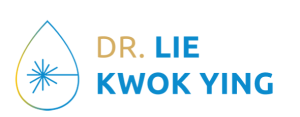For men experiencing the bothersome symptoms of Benign Prostatic Hyperplasia (BPH), medications are often the first recommended treatment. These drugs can significantly improve urinary flow and reduce discomfort, often delaying or avoiding the need for surgery. Understanding how these medications work is key to making the right decision.
Types of Medications Used in BPH
The two main classes of drugs prescribed for BPH are:
- Alpha-blockers: Relax muscles around the bladder neck and prostate, easing urine flow. Examples include tamsulosin and alfuzosin.
- 5-alpha-reductase inhibitors (5-ARIs): Reduce the size of the prostate over time by blocking hormones that contribute to growth. Examples include finasteride and dutasteride.
In some cases, doctors may recommend a combination therapy that uses both drug types, particularly for men with larger prostates and more severe symptoms.
Effectiveness and Side Effects
Medications are most effective in men with mild to moderate symptoms. Alpha-blockers work quickly, often within days, while 5-ARIs may take several months before patients notice improvement.
However, side effects are possible. Alpha-blockers may cause dizziness, fatigue, or low blood pressure, while 5-ARIs can affect sexual function. Patients should discuss potential side effects and weigh the benefits against any risks.
When to See a Specialist
Not every patient responds well to medication, and for some, symptoms may worsen over time. In such cases, seeing an enlarged prostate specialist in Singapore is highly recommended. Specialists have access to advanced diagnostic tools, including ultrasound and uroflowmetry, which help determine whether medications are working effectively or if alternative treatments are necessary.
Additionally, a specialist can provide guidance on whether minimally invasive procedures or surgery may be a better option. This ensures that patients receive a personalized treatment plan tailored to their specific needs.
The Importance of Follow-up Care
Even when medications are effective, regular follow-ups are crucial to monitor progress, check for side effects, and adjust dosages if needed. Long-term management helps prevent complications such as urinary tract infections, bladder stones, or kidney problems.
Final Thoughts
Medications remain an important cornerstone in the treatment of BPH. For many men, they offer reliable relief and delay the need for invasive procedures. Consulting an enlarged prostate specialist in Singapore ensures that patients receive expert guidance and the most up-to-date care for managing their condition. With the right approach, men can maintain both comfort and quality of life while managing prostate health effectively.
Looking for a trusted Urologist in Singapore with proven expertise and compassionate care? Visit Dr Lie Kwok Ying | Urologist In Singapore | BPH Specialist.
Clinic: Dr Lie Kwok Ying | Urologist In Singapore | BPH Specialist
Name: Dr Lie Kwok Ying
Address: 820 Thomson Rd, #02-01, Singapore 574623
Phone Number: 6553 5066
Schedule:
Monday-Friday: 08:30am – 5:00pm
Saturday: 08:30 am – 12:00 pm
Sunday / PH: CLOSED
Description: Urologist In Singapore With 20 Years Of Experience. Fellowship-trained Senior Consultant Urologist specializing in benign prostatic hyperplasia (BPH), kidney cancer, bladder cancer, and kidney stones. Pioneer in HoLEP (Holmium Laser Enucleation of the Prostate) in Singapore.
Website: https://lkyurology.com/
Email: alvernia.clinic@urology.com.sg





